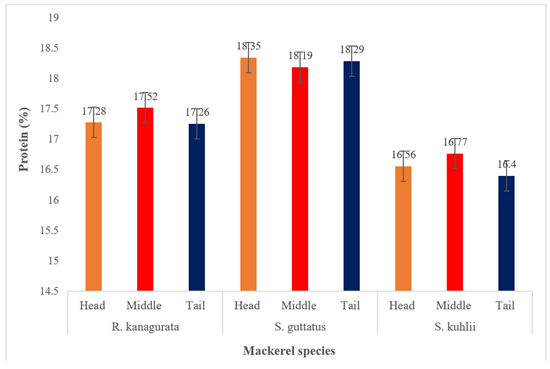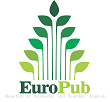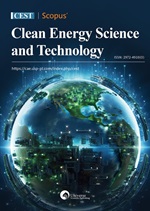Comparative biochemical analysis of different body portions of three mackerel species of the Bay of Bengal, Bangladesh
DOI:
https://doi.org/10.18686/fnc290Keywords:
mackerel; fish; proximate composition; protein; Bay of BengalAbstract
The most readily available sources of protein for humans are fish and fish products. The most affordable and available fish species are mackerel, which are found in markets across the globe and are used in a variety of regional cuisines. The present study was carried out to analyze the biochemical composition (wet weight basis) such as moisture, protein, fat ash, and carbohydrate in three mackerel fishes (Rastrelliger kanagurta, Scomberomorus guttatus, and Scomberomorus kuhlii) of the Bay of Bengal, Bangladesh. The highest moisture (73.25%–73.76%) was found in S. kuhlii, whereas the highest protein content (18.19%–18.35%) was recorded in S. guttatus. Fat amount was recorded high in S. guttatus (7.10%–7.24%) compared to R. kanagurata and S. kuhlii. The maximum ash was found in S. guttatus, while the highest (2.81%–4.48%) carbohydrate contents were recorded in R. kanagurata. One-way ANOVA showed no significant differences in proximate composition in different fish species (p > 0.05). According to the current study, mackerel is an inexpensive protein source that is thought to be good for human health.

Downloads
Published
How to Cite
Issue
Section
License
Copyright (c) 2025 Author(s)

This work is licensed under a Creative Commons Attribution 4.0 International License.
References
1. Ahmed I, Jan K, Fatma S, et al. Muscle proximate composition of various food fish species and their nutritional significance: A review. Journal of Animal Physiology and Animal Nutrition. 2022; 106(3): 690-719. doi: 10.1111/jpn.13711 DOI: https://doi.org/10.1111/jpn.13711
2. Balami S, Sharma A, Karn R. Significance Of Nutritional Value Of Fish For Human Health. Malaysian Journal of Halal Research. 2019; 2(2): 32-34. doi: 10.2478/mjhr-2019-0012 DOI: https://doi.org/10.2478/mjhr-2019-0012
3. Simul Bhuyan Md. Heavy Metals Status in Some Commercially Important Fishes of Meghna River Adjacent to Narsingdi District, Bangladesh: Health Risk Assessment. American Journal of Life Sciences. 2016; 4(2): 60. doi: 10.11648/j.ajls.20160402.17 DOI: https://doi.org/10.11648/j.ajls.20160402.17
4. Bhuyan MS, Sharif ASM, Akhtar A, Islam MS. Diversity status of fishes of the Meghna River adjacent to Narsingdi district. Journal of Biodiversity and Environmental Science. 2016; 9: 46-53.
5. Ruel MT, Garrett J, Yosef S, Olivier M. Urbanization, food security and nutrition. Nutrition and health in a developing world. 2017; 705-735. DOI: https://doi.org/10.1007/978-3-319-43739-2_32
6. Venugopal V, Shahidi F. Structure and composition of fish muscle. Food Reviews International. 1996; 12(2): 175-197. doi: 10.1080/87559129609541074 DOI: https://doi.org/10.1080/87559129609541074
7. Khalili Tilami S, Sampels S. Nutritional Value of Fish: Lipids, Proteins, Vitamins, and Minerals. Reviews in Fisheries Science & Aquaculture. 2017; 26(2): 243-253. doi: 10.1080/23308249.2017.1399104 DOI: https://doi.org/10.1080/23308249.2017.1399104
8. Collette BB, Nauen CE. Scombrids of the world: an annotated and illustrated catalogue of tunas, mackerels, bonitos, and related species known to date. Food and Agriculture Organization of the United Nations; 1983.
9. Rajan PT. Marine Fishery Resources and Species Diversity of Tropical Waters. Biodiversity and Climate Change Adaptation in Tropical Islands. 2018; 323-354. doi: 10.1016/b978-0-12-813064-3.00011-9 DOI: https://doi.org/10.1016/B978-0-12-813064-3.00011-9
10. Vollenweider JJ, Heintz RA, Schaufler L, et al. Seasonal cycles in whole-body proximate composition and energy content of forage fish vary with water depth. Marine Biology. 2010; 158(2): 413-427. doi: 10.1007/s00227-010-1569-3 DOI: https://doi.org/10.1007/s00227-010-1569-3
11. Maceda-Veiga A, Mac Nally R, de Sostoa A. Environmental correlates of food-chain length, mean trophic level and trophic level variance in invaded riverine fish assemblages. Science of The Total Environment. 2018; 644: 420-429. doi: 10.1016/j.scitotenv.2018.06.304 DOI: https://doi.org/10.1016/j.scitotenv.2018.06.304
12. Villéger S, Brosse S, Mouchet M, et al. Functional ecology of fish: current approaches and future challenges. Aquatic Sciences. 2017; 79(4): 783-801. doi: 10.1007/s00027-017-0546-z DOI: https://doi.org/10.1007/s00027-017-0546-z
13. Kari NM, Ahmad F, Ayub MNA. Proximate composition, amino acid composition and food product application of anchovy: a review. Food Research. 2017; 1(6). doi: 10.26656/fr.2017.6 DOI: https://doi.org/10.26656/fr.2017.6(4).419
14. Tsoupras A, Brummell C, Kealy C, et al. Cardio-Protective Properties and Health Benefits of Fish Lipid Bioactives; The Effects of Thermal Processing. Marine Drugs. 2022; 20(3): 187. doi: 10.3390/md20030187 DOI: https://doi.org/10.3390/md20030187
15. Ahmad TB, Rudd D, Kotiw M, et al. Correlation between Fatty Acid Profile and Anti-Inflammatory Activity in Common Australian Seafood by-Products. Marine Drugs. 2019; 17(3): 155. doi: 10.3390/md17030155 DOI: https://doi.org/10.3390/md17030155
16. Stipanuk MH, Caudill MA. Biochemical, Physiological, and Molecular Aspects of Human Nutrition-E-Book: Biochemical, Physiological, and Molecular Aspects of Human Nutrition-E-Book. Elsevier health sciences; 2018.
17. Catussi BLC, Lo Turco EG, Pereira DM, et al. Metabolomics: Unveiling biological matrices in precision nutrition and health. Clinical Nutrition ESPEN. 2024; 64: 314-323. doi: 10.1016/j.clnesp.2024.10.148 DOI: https://doi.org/10.1016/j.clnesp.2024.10.148
18. Izah SC, Ogwu MC, Akram M, et al. Herbal Medicine Phytochemistry. Springer International Publishing; 2023. DOI: https://doi.org/10.1007/978-3-031-21973-3
19. AOAC. Official methods of analysis, Association of Official Analytical Chemists. Washington DC; 2000.
20. Guebel DV, Nudel BC, Giulietti AM. A simple and rapid micro-Kjeldahl method for total nitrogen analysis. Biotechnology Techniques. 1991; 5(6): 427-430. doi: 10.1007/bf00155487 DOI: https://doi.org/10.1007/BF00155487
21. Mehlenbacher VC. The analysis of fats and oil. The Garad Press Publishing Champaign, Illinosis; 1960.
22. Kalita R, Pegu A, Baruah C. Prospects of Probiotics and Fish Growth-promoting Bacteria in Aquaculture: A Review. International Journal of Agriculture and Biosciences. 2023; 12(4): 234-244. doi: 10.47278/journal.ijab/2023.070 DOI: https://doi.org/10.47278/journal.ijab/2023.070
23. Sonavane AE. Proximate Composition and Fatty Acid Profiling of Indian Mackerel (Rastrelliger kanagurta) off Ratnagiri, West Coast of India. International Journal of Pure & Applied Bioscience. 2017; 5(4): 920-924. doi: 10.18782/2320-7051.5438 DOI: https://doi.org/10.18782/2320-7051.5438
24. Sumi ES, Vijayan DK, Jayarani R, et al. Biochemical composition of Indian common small pelagic fishes indicates richness in nutrients capable of ameliorating malnutrition and age-associated disorders. Journal of Chemical Biology & Therapeutics. 2016; 1(2): 112.
25. Venkataraman R, Chari ST. Seasonal variation in the chemical composition of mackerel (Rastrelliger kanagurta Russel). Proceedings / Indian Academy of Sciences. 1951; 33(3): 126-134. doi: 10.1007/bf03049977 DOI: https://doi.org/10.1007/BF03049977
26. Kim SM, Kim H, Lee WC, et al. Monthly variation in the proximate composition of jack mackerel (Trachurus japonicus) from Geumo Island, Korea. Fisheries Research. 2016; 183: 371-378. doi: 10.1016/j.fishres.2016.07.009 DOI: https://doi.org/10.1016/j.fishres.2016.07.009
27. Osako K, Yamaguchi A, Kurokawa T, et al. Chemical components and body color of horse mackerel caught in different areas. Fisheries Science. 2002; 68(3): 587-594. doi: 10.1046/j.1444-2906.2002.00465.x DOI: https://doi.org/10.1046/j.1444-2906.2002.00465.x
28. Alam GMJ. Studies on Gangetic anchovy, Setipinna phasa (Hamilton-Buchanan, 1822) from the landing center of Chittagong. University of Chittagong; 1994.
29. Alkuraieef AN, Alsuhaibani AM, Alshawi AH, et al. Proximate chemical composition and lipid profile of Indian mackerel fish. Food Science and Technology. 2022; 42. doi: 10.1590/fst.67120 DOI: https://doi.org/10.1590/fst.67120
30. BCSIR. The wealth of India, Raw materials, supplement Fish and Fisheries, CSIR, New Delhi; 1962.
31. Gheyasuddin S, Rahman MA, Kamal M. Nutritive qualities of some of the commercial marine fishes of Bangladesh. Journal of Bangladesh Agriculture. 1979; 4(1): 34-38.
32. Soo-Kyung MOON. Studies on the Lipid Components in Sweetfish from Korea-1 Comparison of the contents of total lipid components. Korean Journal of Fisheries and Aquatic Sciences. 1993; 26(3): 235-240.
33. Yilmaz HA. Proximate Composition, Fatty Acid and Amino Acid Profiles of Narrow-Barred Spanish Mackerel (Scomberomorus commerson) Fillets from İskenderun Bay in The North-Eastern Mediterranean Sea. Tarım Bilimleri Dergisi. 2021: 439-448. doi: 10.15832/ankutbd.753691 DOI: https://doi.org/10.15832/ankutbd.753691
34. Celik M. Seasonal changes in the proximate chemical compositions and fatty acids of chub mackerel (Scomber japonicus) and horse mackerel (Trachurus trachurus) from the north eastern Mediterranean Sea. International Journal of Food Science & Technology. 2008; 43(5): 933-938. doi: 10.1111/j.1365-2621.2007.01549.x DOI: https://doi.org/10.1111/j.1365-2621.2007.01549.x
35. Aubourg SP, Lehmann I, Gallardo JM. Effect of previous chilled storage on rancidity development in frozen horse mackerel (Trachurus trachurus). Journal of the Science of Food and Agriculture. 2002; 82(15): 1764-1771. doi: 10.1002/jsfa.1261 DOI: https://doi.org/10.1002/jsfa.1261
36. Aubourg S, Ugliano M. Effect of brine pre-treatment on lipid stability of frozen horse mackerel (Trachurus trachurus). European Food Research and Technology. 2002; 215(2): 91-95. doi: 10.1007/s00217-002-0530-1 DOI: https://doi.org/10.1007/s00217-002-0530-1
37. Losada V, Pineiro C, Barrosvelazquez J, et al. Inhibition of chemical changes related to freshness loss during storage of horse mackerel () in slurry ice. Food Chemistry. 2005; 93(4): 619-625. doi: 10.1016/j.foodchem.2004.09.041 DOI: https://doi.org/10.1016/j.foodchem.2004.09.041
38. Soyer A, Şahin M. Effect of Glazing and Storage Time on Lipid Oxidation of Frozen Chub Mackerel (Scomber japonicus). Turkish Journal of Veterinary & Animal Sciences. 1999; 23(6): 575-584.
39. Moon SK, Hong SN, Kim IS, Jeong BY. Comparative analysis of proximate compositions and lipid component in cultured and wild mackerel Scomber japonicus muscles. Korean Journal of Fisheries and Aquatic Sciences. 2009; 42(5): 411-416. doi: 10.5657/kfas.2009.42.5.411 DOI: https://doi.org/10.5657/kfas.2009.42.5.411
40. Leu S, Jhaveri SN, Karakoltsidis PA, et al. Atlantic Mackerel (Scomber scombrus, L): Seasonal Variation in Proximate Composition and Distribution of Chemical Nutrients. Journal of Food Science. 1981; 46(6): 1635-1638. doi: 10.1111/j.1365-2621.1981.tb04449.x DOI: https://doi.org/10.1111/j.1365-2621.1981.tb04449.x
41. Ogbe KU, Omada OI. Comparative Studies on the Proximate Composition of the Various Body Part of Clarias gariepinus and Scomber scomrus. Journal of Applied Sciences and Environmental Management. 2020; 24(4): 615-618. doi: 10.4314/jasem.v24i4.11 DOI: https://doi.org/10.4314/jasem.v24i4.11
42. Love RM. The biochemical composition of fish. Academic press, New York; 1970.
43. Rubbi SF, Jahan SS, Begum M. Studies on composition and spoilage pattern of seven varieties marine fishes. Bangladesh Journal of Applied Science. 1987; 14(1): 59-65.
44. Banu CP, Nahar B, Begum M, Ahmad K. Studies on the protein, riboflavin and iron content of some freshwater fish and a prawn of Bangladesh. Bangladesh Journal of Zoology. 1985; 13: 25-28.
45. Nazim-ud-doullah. Isolation, identification, characterization and Analysis of Anti-microbial activity of Kamila fish oil and studies on the Approximate Biochemical Composition and Ca & Fe content of Kamila fish. M. Sc. Thesis, Department of Chemistry. University of Chittagong; 1996.
46. Mannan A. Nutritional aspects of marine fish and fisheries products. University of Chittagong; 1977. pp. 8-19.
47. Bandarra N, Batista I, Nunes M, et al. Seasonal variation in the chemical composition of horse-mackerel (Trachurus trachurus). European Food Research and Technology. 2001; 212(5): 535-539. doi: 10.1007/s002170100299 DOI: https://doi.org/10.1007/s002170100299
48. Rahman MM, Hajar S, Yunus KB. Comparative analysis of chemical composition of some commercially important fishes with an emphasis on various Malaysian diets. Open Chemistry. 2020; 18(1): 1323-1333. doi: 10.1515/chem-2020-0152 DOI: https://doi.org/10.1515/chem-2020-0152
49. Lovern JA. Some causes of variation in the composition of fish oils. J. Soc. Leather Trades Chemists. 1950; 34: 7-23.
50. Azim A. Studies on proximate composition, biochemical quality and quantitative microbial aspects of two fishes and a shrimp [Master’s thesis]. University of Chittagong, Chittagong; 1982.
51. Osako K, Yamaguchi A, Kurokawa T, et al. Seasonal variation in docosahexaenoic acid content in horse mackerel caught in the East China Sea. Fisheries Science. 2003; 69(3): 589-596. doi: 10.1046/j.1444-2906.2003.00661.x DOI: https://doi.org/10.1046/j.1444-2906.2003.00661.x
52. Shirai N, Suzuki H, Tokairin S, et al. Dietary and seasonal effects on the dorsal meat lipid composition of Japanese (Silurus asotus) and Thai catfish (Clarias macrocephalus and hybrid Clarias macrocephalus and Clarias galipinus). Comparative Biochemistry and Physiology Part A: Molecular & Integrative Physiology. 2002; 132(3): 609-619. doi: 10.1016/S1095-6433(02)00081-8 DOI: https://doi.org/10.1016/S1095-6433(02)00081-8
53. Shirai N, Terayama M, Takeda H. Effect of season on the fatty acid composition and free amino acid content of the sardine Sardinops melanostictus. Comparative Biochemistry and Physiology Part B: Biochemistry and Molecular Biology. 2002; 131(3): 387-393. doi: 10.1016/S1096-4959(01)00507-3 DOI: https://doi.org/10.1016/S1096-4959(01)00507-3
54. Boran G, Karacam H. Seasonal changes in proximate composition of some fish species from the Black Sea. Turkish Journal of Fisheries and Aquatic Sciences. 2011; 11(1). doi: 10.4194/trjfas.2011.0101 DOI: https://doi.org/10.4194/trjfas.2011.0101
55. Nurjanah N, Nurilmala M, Hidayat T, Azri RYI. Fatty acid composition and cholesterol Indian mackerel (Rastrelliger kanagurta) due frying process. International Journal of Materials Chemistry and Physics. 2016; 2(2): 54-61.
56. Obodai E, Abbey I, MacCarthy C. Biochemical composition of some marine fish species of Ghana. International Journal of Biological and Chemical Sciences. 2009; 3(2). doi: 10.4314/ijbcs.v3i2.44499 DOI: https://doi.org/10.4314/ijbcs.v3i2.44499




.jpg)
.jpg)

